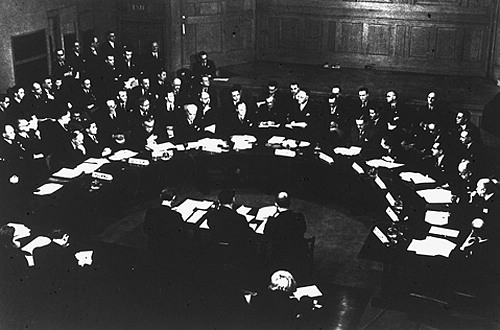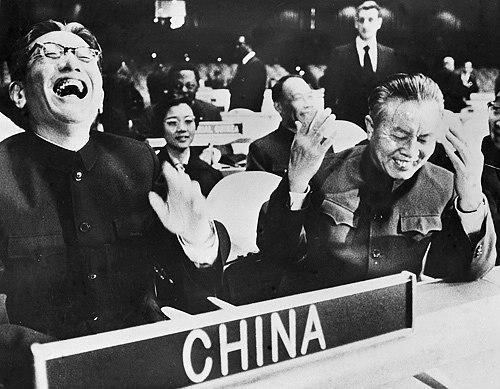|
 |
|
SMALL BEGINNINGS: Representatives from the 51 founding countries attend the First Session of the UN General Assembly, held in London from January 10 to February 14, 1946 (XINHUA) |
China's stance on climate change is a telling example in this regard. China is leading the world in carbon dioxide emissions. As a result, many Western countries demand China take responsibilities beyond its ability. For China, on the one hand, it should actively participate in the negotiations aimed at formulating strategies to cope with global climate change. On the other hand, it must safeguard its own interests, by sticking to the principle of "common but differentiated responsibilities" and taking responsibilities corresponding to its development level.
And there comes the subject of counterterrorism. Terrorism is a global issue, harming the security of all countries. China is also faced with terrorist threats, for instance, from "East Turkistan" separatists. Therefore, it is essential for China to cooperate with other countries to combat terrorism.
In the future, the areas in which China can make use of the UN will further expand. China already has its own economic interests, including mines, enterprises, investments and employees, in many other developing countries. If there were disturbances in these countries, China's interests would be harmed. So their peace and stability are of direct concern to China. In the future, China will take a more active approach to these issues.
In what way has China benefited from its participation in UN affairs in past decades?
First, China has expressed its ideas, with the UN as a forum. Every year, Chinese leaders make multilateral and bilateral contacts with leaders of many other countries and international organizations, with the UN as a stage. China also established diplomatic relations with some countries, with the UN as a channel. In addition, the UN has been a tool of international cooperation for China. Through it, China has obtained financial and technological aid from UN agencies such as the World Bank and the International Monetary Fund. This aid has played a significant role in China's development, especially at the beginning of its reform and opening up process.
A prominent role of the UN is as a benchmark for the legality of international actions. The differences between the Gulf War and the Iraq War are a telling example. The wars were respectively started by George H. W. Bush and George W. Bush—the pair of father-son U.S. presidents. The war started by George H. W. Bush in 1991 received the authorization of the UN Security Council and was considered a legitimate war, while the one started by George W. Bush in 2003 had no such authorization, and was condemned by then UN Secretary General Kofi Annan as illegitimate. The international community also criticized the United States, claiming it had violated the UN Charter.
 |
|
A JOYOUS DEBUT: Then Chinese Vice Foreign Minister Qiao Guanhua (left) attends the 26th Session of the UN General Assembly at the UN headquarters in New York, along with Huang Hua, China's first Permanent Representative to the UN, shortly after China reclaimed its seat in the world body in October 1971 (XINHUA) |
The different evaluations on the two wars proved the UN's role in determining international morality and legitimacy. If an action is approved by the UN, then it is legitimate.
|
